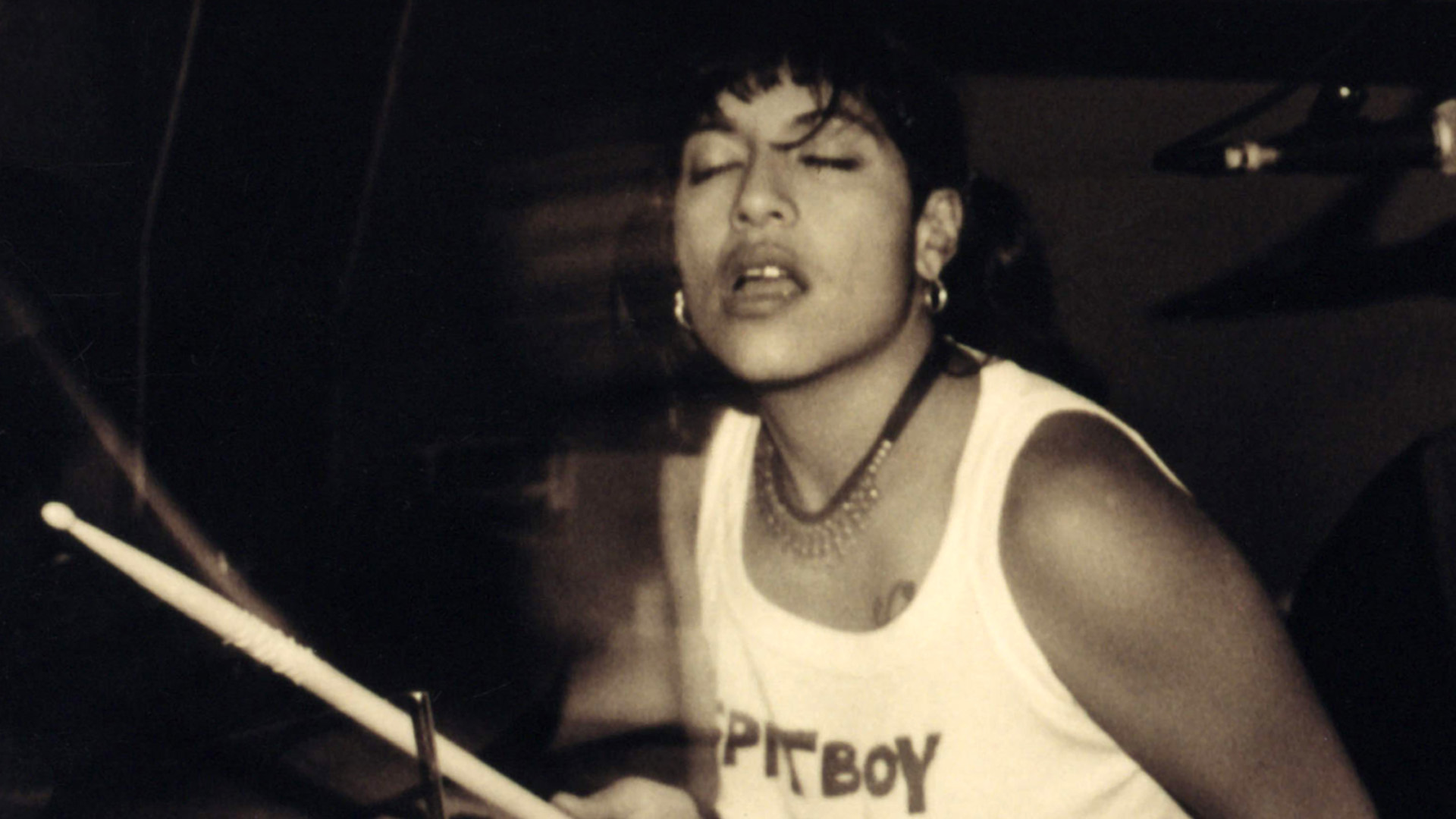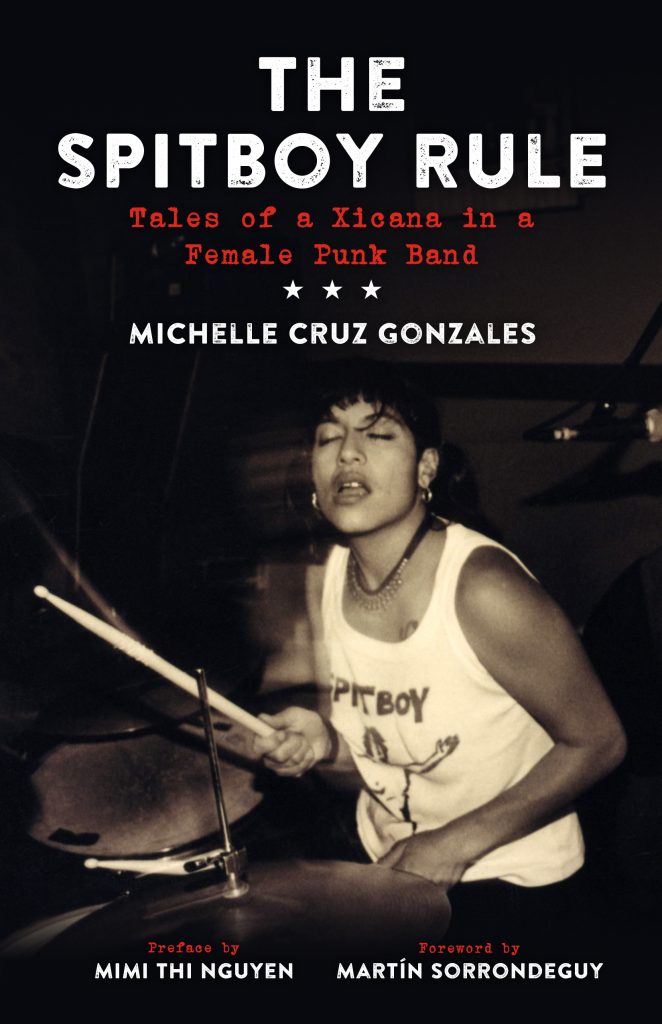By John McMurtrie
CBC Q&A
October 22nd, 2020

The California Book Club panelist draws inspiration from Chicana punks, an experimental poet, and a Black jockey whose story deserves a book.
A professor of English and Chicana/o studies at UCLA, Marissa López has written two books that delve into Mexican American literature and culture: they are Chicano Nations: The Hemispheric Origins of Mexican American Literature and Racial Immanence: Chicanx Bodies Beyond Representation, both published by New York University Press. But López’s passion for her field has also taken her beyond the ivory tower. Thanks to a recent residency at the Los Angeles Public Library, she was able to develop an inspired interactive app, Picturing Mexican America, that will bring to life the history of Mexican Los Angeles. The map-based app, which is scheduled to be available by the end of 2020, will showcase location-specific images of the past on a user’s mobile device. The project also has an Instagram account: @PicturingMexicanAmerica. López’s deep knowledge of California literature and culture will serve her well as one of the six panelists who select titles for the California Book Club. The book club reached out to her via email for her take on California books.
What’s your most treasured book about California—or that’s set in the state?
City of God,
by Gil Cuadros (1994), an achingly beautiful collection of prose and
poetry that correlates the slow disintegration of the writer’s body due
to AIDS-related complications with the decline and transformation of
L.A. in the early 1990s.
What are some of the best overlooked books that take place in the Golden State?
Twin Time, by Veronica Gonzalez Peña (2007). One of my all-time favorite books that nobody ever talks about, Twin Time
has it all, and then some. A lost twin, a mentally ill mother, an
abusive grandmother, a sexy British hairdresser, a lovestruck baker,
and…well…elves…wander—sometimes together and sometimes apart—through
fantastical, dreamscape versions of Mexico City, Los Angeles, New York,
and London in an epic tale of a young woman coming to terms with the
weight of history and her own past.
The Spitboy Rule: Tales of a Xicana in a Female Punk Band, by Michelle Cruz Gonzales (2016). There were Chicana punks after Alice Bag! Spitboy was an epic, thrash punk band that tore up the Bay Area in the ’90s with a hurricane of sound driven by Gonzales on drums. These women didn’t put the “riot” in riot grrrl; they scoffed at such Pacific Northwest art college frivolity. They were bound together by their love of music and uncompromising feminism, but race created an unspeakable, ineffable distance between them. In her memoir, Gonzales describes what it was like to be a Chicana among the whites and how she learned to speak her truth to a community so blinded by its own right-on, straight-edge politics that it was blind to its own racism.
Who are some new California authors you’re most excited about?
Nikki Darling, author of Fade Into You
(2018), a penetrating novel exploring teen angst, punk self-fashioning,
and Chicana identity. Darling is a phenomenal writer who can craft
sentences beautiful enough to make you cry.
Alan Pelaez Lopez, Intergalactic Travels: poems from a fugitive alien (2020) and to love and mourn in the age of displacement (2020): an experimental poet at the intersections of AfroIndigenious identity, gender nonconformity, and migrant subjectivity, also a scholar of undocumented Black Indigenous (undocuBlack) literature.
What’s a California story that deserves to be told in a book?
I really want somebody to write something about the African
American jockey who rode José Sepulveda’s horse Black Swan to victory
against Pio Pico’s horse Sarco on March 20, 1852. The event sparked
California’s love of high-stakes racing but is even more noteworthy for
the Black jockey, a California first, apparently, who was riding Black
Swan. Obviously, Californians had seen African Americans before 1852,
but never an African American jockey. Unfortunately, we know nothing
about him, not even his name. That’s how completely Black Swan stole the
show. We know from contemporary reports that the crowd gasped when they
saw him, but who was this man, and what could it have meant for him to
ride this horse to victory for his Mexican employer? The story is such a
known unknown that illuminates so much we do know about the fraught
stakes of Black-brown solidarity and all the names we must keep saying,
lest they, too, be lost to history. In the right hands, the story of
Black Swan’s jockey could be a story for the ages.
What’s the one California book that people need to read right now?
The Revolt of the Cockroach People,
by Oscar Zeta Acosta (1973), a fictionalized autobiography about
Acosta’s (a.k.a. Buffalo Brown’s) work as a Los Angeles lawyer defending
activists during the Chicano civil rights movement who are protesting
racial injustice, anti-Black and anti-brown police brutality, and the
Vietnam War. The book offers a deep history of our current struggles
while making clear how little things have changed in the past 50 years.
To quote a sign I saw recently that Acosta would have loved: “Racism
isn’t getting worse, it’s just getting filmed.”
Read more about the California Book Club selection panel here.
Michelle Cruz Gonzales played drums and wrote lyrics for three bands during the 1980s and 1990s: Bitch Fight, Spitboy, and Instant Girl. Her writing has been published in anthologies, literary journals, and Hip Mama magazine. Michelle teaches English and creative writing at Las Positas College, and lives with her husband, son, and their three Mexican dogs in Oakland, California.







